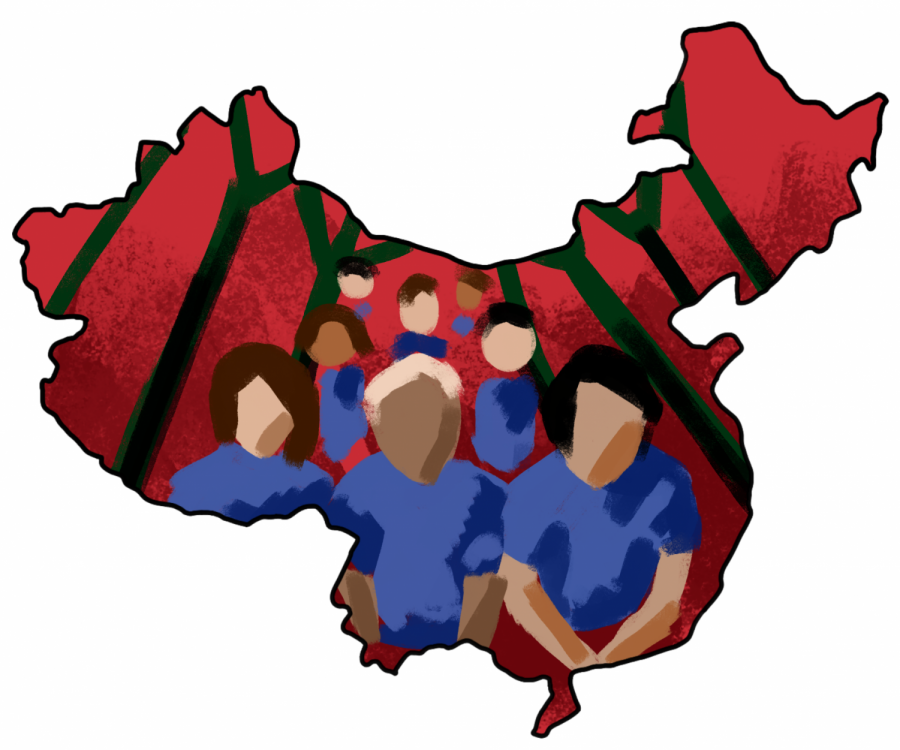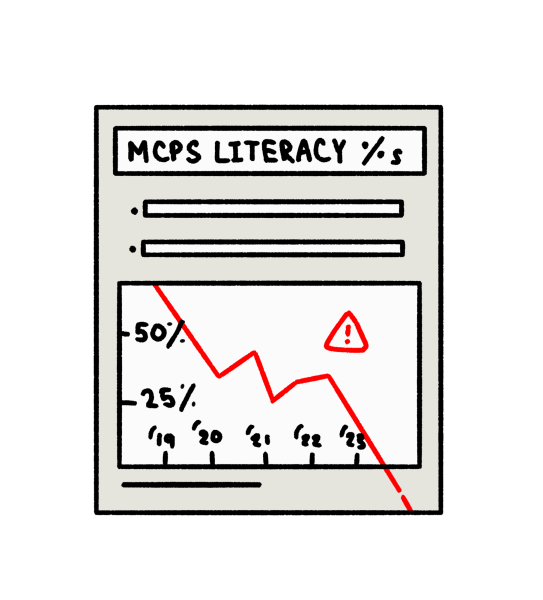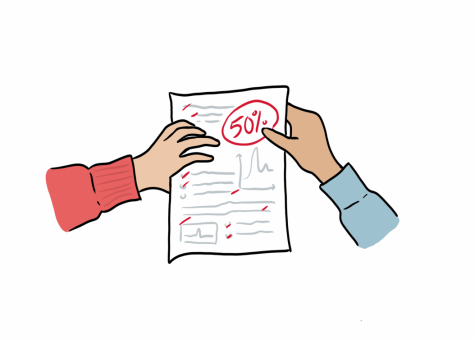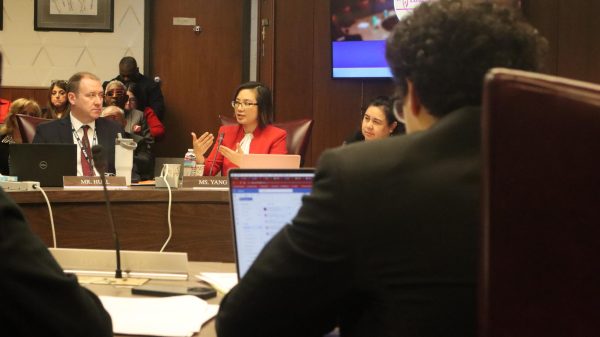If the world does not hold China accountable, a second Holocaust could be part of history
The world must not stand by as the Chinese government wrongfully interns millions of Uighur Muslims.
November 26, 2020
The world once vowed that another humanitarian crisis like the Holocaust would never again occur, though 75 years later, millions of Chinese citizens are experiencing similar treatment. In its latest human rights abuse, China has unjustly imprisoned between one and three million Uighur Muslims in internment camps. There, the government forces Uighurs to undergo psychological indoctrination programs, torture and sexual abuse under the guise of “re-education” and “de-extremification”.
While this crisis has existed since 2017, it only recently became known as the “largest mass internment of an ethnic-religious minority group since World War II” according to Vox. The oppression of the Uighurs is horrific, and the world has done little to stop it. China must be held accountable for this cleansing and people must stand up and fight against these atrocities.
Capitalizing on universal Islamophobia and anti-terrorist sentiments, the Chinese government justifies persecuting the entire Uighur population based on the violent actions of a few separatist-fueled terrorist groups. Unfortunately, this excuse has led the rest of the world to turn a blind eye to the camps’ true functions and intensified prejudice against the Uighurs. This results in inaction from world leaders, leaving the Uighurs helpless. Junior Nusrat Meetul said, “Muslims and Islam are painted in such a bad light by society and the media and this has heavily impacted the way people have responded to this crisis.”
In an indifferent response to the dire situation, earlier this year the U.S. passed the Uighur Human Rights Bill, imposing sanctions on the Chinese officials responsible for this atrocity. Britain, France, Australia and Canada also signed a UN letter condemning China’s acts, but it was solely for appearance’s sake. Neither of these efforts have affected China’s treatment of the Uighurs. Moreso, it grows increasingly difficult to condemn China for religious persecution as majority Muslim nations such as Pakistan and Iran still politically and economically ally themselves with China.
Every nation has a moral obligation to intervene in this despicable human rights abuse. The main problem with the Uighur crisis is the lack of knowledge most people have regarding the subject. Meetul said, “the media itself could spread more awareness to increase pressure on national governments.” Conducting outside investigations into these internment camps will allow more people from the public to get a better understanding of what inhumanities occur there.
As described by the UN’s charter, the Security Council can opt for enforcement measures, ranging from economic sanctions to collective military action. Given the weight of this crisis, the UN Security Council should pursue any means possible to end what could be the largest human rights abuse of our generation. Before military action is taken, however, world powers must approach the issue with strong diplomatic pursuits and realize that China’s actions are driven in large part by economic interests.
While religion and ethnicity is a major factor, the oppression is a result of the Belt and Road Initiative (BRI) which aims to make China an economic geo-center like America. Situated in eastern China, the Xinjiang region geographically connects the European and Central/Western Asian markets and the government views the high Uighur population as an obstacle to their economic success.
China has bought the support of 37 countries with investments in infrastructure and military despite the fact that these countries house large Muslim populations. A feeble condemnation from western nations does little in comparison to the trillions of dollars China aims to make from the BRI. Instead, the U.S. and its allies can force China to shut down their camps by obstructing the implementation of the BRI. Through the power of the purse, we must show China and its supporters that the value of human life exceeds the value of GDP.
Driven by economic gain and religious intolerance, the Chinese government has embarked on a crusade against the Uighur population while the rest of the world has stood idly by, potentially creating the worst humanitarian crisis since the Holocaust. Through a modern D-Day consisting of outside investigations of these camps, global awareness campaigns, economic measures and last-resort military action, the world must band together to end this atrocity. The world must not be caught in a cycle of ethnic persecution, the next generation should not be taught about the Holocaust we could have prevented.












